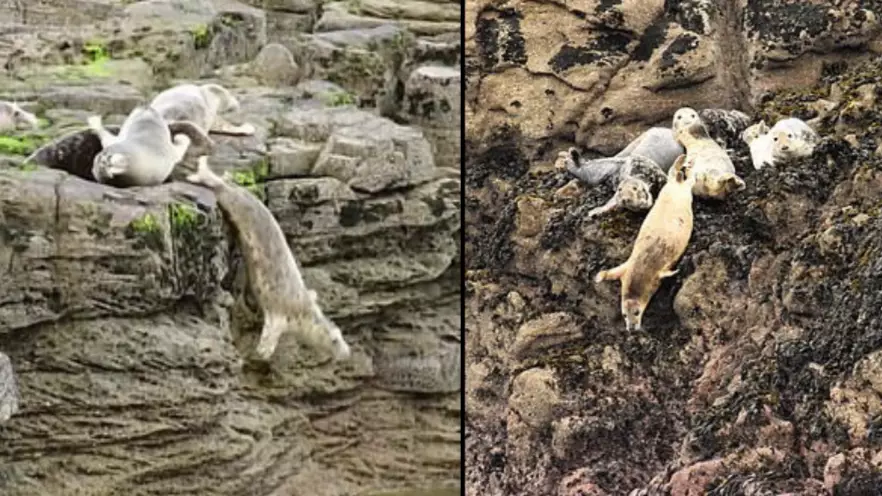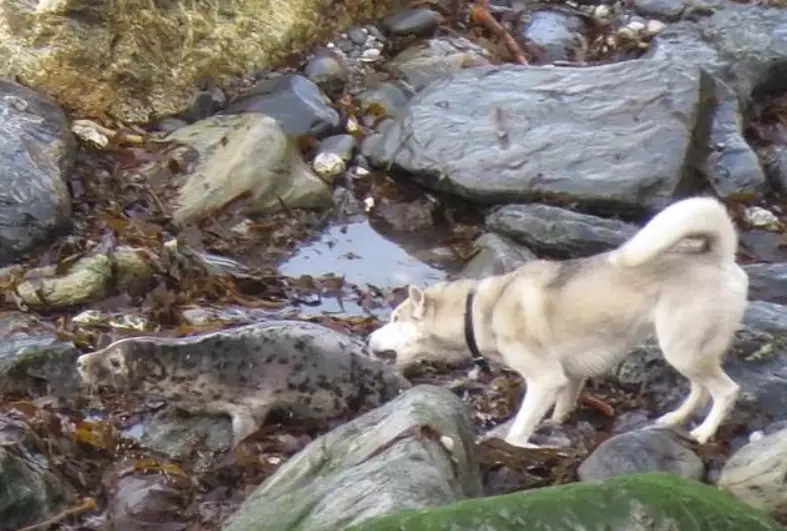
A new study has highlighted the impact humans are having on seal populations, with action groups urging tourists around the British coast to 'give seals space'.
WARNING: CONTAINS DISTRESSING FOOTAGE
The new report, which is entitled 'Please Do Not Disturb!', was funded by the Seal Protection Action Group and the Cornwall Seal Group Research Trust for The Seal Alliance.
Advert
It found that seals are under pressure from a multitude of human-related issues, including motorised vessels, divers, jet skis, kayaks, paddle-boarders, wildlife watching tours on land or sea, anglers, walkers, dogs on and off leashes, drones, light aircraft, helicopters and even commercial wildlife photographers.
It warned that repeated disturbance can prompt animals to try and flee humans - or attacks from dogs - which can in turn lead to serious injury or death.
Andy Ottaway, from the Seal Protection Action Group, said seals already face enough of a threat from problems like over-fishing of waters or habitat issues, and should be left alone.
Advert
"Our seals are under increasing threat from deliberate killing, climate change, over-fishing, toxic pollution, entanglement in nets, ingestion of plastic and serious injury from collisions with vessels," he said.
"We need to give all our precious marine wildlife, including seals, more space.
"The cumulative impact of all these threats, along with these growing disturbance issues, is placing these wonderful animals at serious risk."
Photographs released in the report include one of a dog attacking a young seal, which is desperately trying to escape into the water.

The study also details other serious incidents across the UK at key areas seals use for resting, socialising, breeding and molting.
Advert
At one West Cornwall site, there are regular disturbances from tourists or their dogs, which often lead to stampedes - with observers recording up to 10 stampedes in just 70 minutes.
During mid to high tide, stampedes occur over shingle. However, when the tide is low, a small boulder beach is exposed - increasing the risk of more serious injuries.
Pregnant females have also been seen stampeding over the boulder beach at low tide, meaning there is a greater risk for injury to unborn seal pups.
Sue Sayer, from the Cornwall Seal Group Research Trust, said: "Many communities benefit financially from tourism and the kind of reliable wildlife watching that seals provide.
Advert
"However, we need to take care and must reduce already high levels of disturbance, and soon, or those environmental, social and economic benefits could soon disappear along with our seals."
Featured Image Credit: Seal Protection Action Group